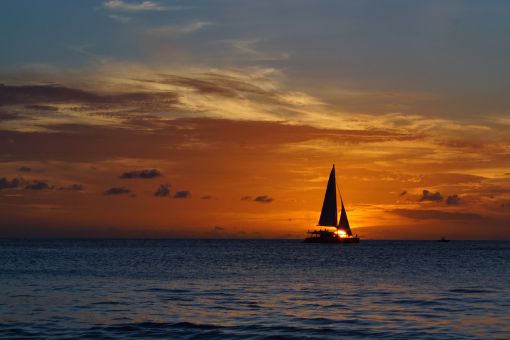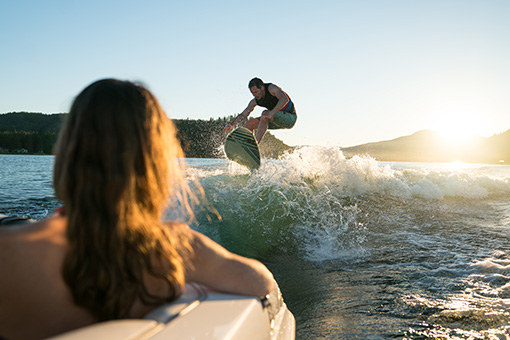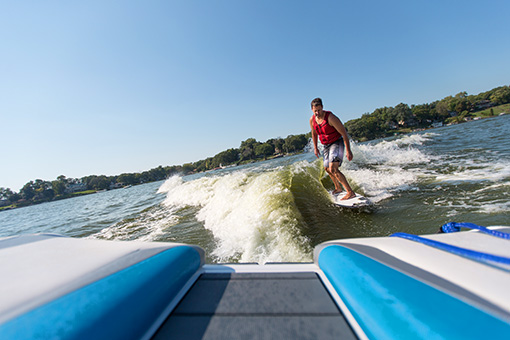Sunlight sparkling off the waves, a refreshing splash hitting your face, the pure thrill of cruising across open waters—sure, daytime boating is great. But here's the thing: when the sun finally calls it quits, that's when the real magic begins.
Stargazing on a boat? It's a completely different experience than trying to squint at stars from your backyard (especially if you live anywhere near a city). Think about it—out on the water, you're miles away from streetlights, neon signs, and all the light pollution that usually washes out half the night sky. Boat stargazing basically gives you front-row seats to the universe's greatest show, and trust us, it's one performance you don't want to miss.

Why Boat Stargazing Beats Land-Based Viewing
The main advantage of stargazing on a boat is simple: you can escape light pollution. (Even moderate-sized towns create enough ambient light to dim the cosmic display.) And by heading offshore, you can find truly dark skies that reveal thousands more stars than you'd see from land.
Essential Safety for Night Boating
Okay, before we get all starry-eyed (literally), let's talk safety, because nothing ruins a perfect night of stargazing quite like... well, an emergency. Night boating isn't your typical afternoon cruise where you can see everything coming from a mile away. Out there in the dark, things get serious fast, so the right prep work isn't just smart—it's absolutely essential.
1: Prioritize Safety Equipment
Before getting lost in the stars, safety must come first. Night boating requires extra precautions beyond your typical daytime cruise. First, make sure everyone aboard has a properly fitting life jacket—no exceptions.
2: Check Navigation Lights
Boat navigation lights are crucial for safety on the water when it’s dark. Test every single navigation light before you even think about leaving the dock. Red, green, white—the whole light show needs to be working perfectly. Other boats need to see you coming, and honestly? These lights are basically your "hello, don't hit me" signal to the world.
3: Share Your Float Plan
This one's non-negotiable: tell someone on shore exactly where you're going and when you plan to be back. Think of it as your safety net. If anything goes sideways and you don't check in as planned, at least someone knows where to start looking. (Plus, it gives you that extra peace of mind to actually enjoy the stars!)
4: Bring Communication Devices
Be sure to bring fully charged phones and a VHF radio for emergencies. Having multiple communication options provides backup if one fails during your night boating excursion.
5: Reduce Your Speed
Move at slower speeds than during daylight hours. Nighttime visibility is limited, so easing off on the throttle gives you more time to react to obstacles.
6: Assign a Dedicated Lookout
Designate a person to stay focused on the water and watch for obstacles or other vessels while everyone is busy stargazing. It’s not the most gamourous role, but it’s essential for keeping your stargazing adventure safe.
7: Use Red Lights for Visibility
Bring red-light flashlights or headlamps that preserve night vision while allowing you to see what you're doing on deck during your stargazing on a boat experience.
8: Allow Time for Eye Adjustment
Give your eyes about 20 minutes to adjust to the darkness when you reach your viewing spot. Your eyes need time to adapt to the darkness—the longer you wait, the more stars you'll see appear during your night boating adventure.
Planning Your Boat Stargazing Trip
Timing is crucial for successful boat stargazing! Check the lunar calendar and try to plan your trip during a new moon when the sky is darkest. Also review weather forecasts carefully—clear skies are essential, and calm waters make for better viewing.
For the best results, travel at least a few miles offshore or to the center of a lake. Once you’ve reached your viewing spot cut the engines, turn off any unnecessary lights and drop anchor. Important safety note: a white anchor light must be displayed at all times when you’re anchored at night.
After you're set up, take time to really soak it in. Lie back on the deck and simply look up. Watch for satellites, meteors, and even the International Space Station making its orbit around Earth.
What to Pack for Night Boating and Stargazing
In addition to safety equipment, consider packing these items for a more enjoyable experience:
- Nautical charts, a compass, and a GPS device with fresh batteries
- Warm, waterproof clothing and blankets (temperatures drop significantly on water at night)
- Binoculars (more practical than telescopes due to boat motion)
- Star chart or stargazing app (with night mode enabled)
- Thermos with hot drinks and simple snacks
- Waterproof speaker for soft background music
The Perfect End to a Day on the Water
Look, we've all done plenty of things on boats, but there's something about boat stargazing that just hits differently. Maybe it's how floating under a canopy of stars makes our everyday worries seem ridiculously small. (Does that work deadline really matter when we're staring at infinity?)
So next time we're planning a day on the water, don’t pack it in when the sun goes down. Stick around past sunset. Do the homework, get the safety stuff sorted, and stargazing on a boat might just become our new favorite tradition.

